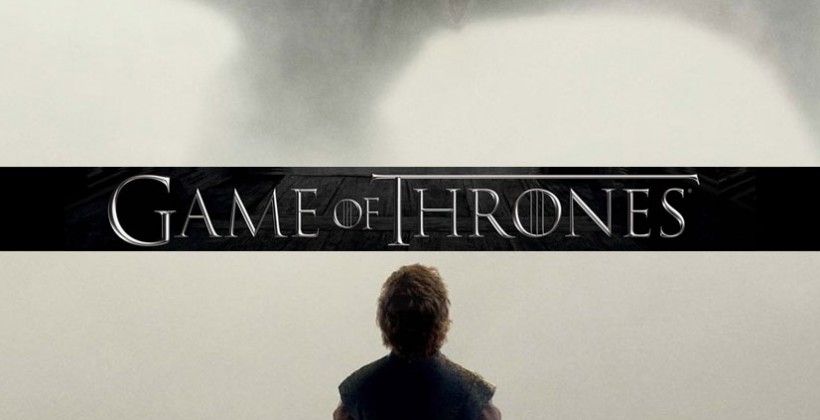Note: This contains spoilery details about the fifth season of Game of Thrones.
Spring is in the air, and that means one thing: Winter is Coming.
April 24th marked the return of HBO’s massively popular Game of Thrones, and with it a whole cadre of rabid fans looking for resolution to unanswered questions. With the fifth season ending last June, fans of both the novels and TV show have waited to see if Jon Snow’s death was less than permanent, and whether or not Khaleesi will finally return to Westeros.
My wife and I are hooked on Game of Thrones. The sweeping narratives, the intricate characters, and Peter Dinklage all make the show one of the highlights of our week. Once the kids are in bed we queue up the show and with the familiar crackle of the HBO title card, eagerly dive into a world of medieval politics, dragons, and ice zombies.
For the uninitiated, Game of Thrones is a sprawling epic set in a mystical version of medieval Europe. Seven families claim lordship over the vast majority of a small continent, and engage in constant political and martial engagements to win the seat of power—the Iron Throne. In this mystical land there are dragons, as well as an army of undead zombie ice warriors. But the dragons and ice zombies are just the bunting on a stellar plot centering on Machiavellian maneuvers executed by, and against, terribly flawed people. Game of Thrones teaches viewers to not become attached to any one character. People are ruthless, and many much-beloved characters have met unfortunate fates.
Toward the end of last season, I was reading bedtime stories to my then three-year-old daughter before the show aired. The usual routine allows her to choose three stories to read together before she is tucked in for the night. One of the books she chose was a compilation of stories about famous children in the Bible. Among them were the stories of Abraham and Isaac, David vs Goliath, and Miriam helping Moses escape the Egyptian guards. At her request, we read the familiar story about Isaac’s near sacrifice at the hands of his father.
Abraham is commanded by God to kill his only son and heir, effectively voiding God’s promise to make him into a great nation. Abraham takes his son to the top of Mount Moriah and prepares to kill him, but at the last second God spares Isaac and allows Abraham to sacrifice a ram instead.
I kissed my daughter goodnight, and she went to bed.
An hour later, I watched as Stannis Baratheon, one claimant to the Iron Throne, burned his daughter Shireen alive. The lesson of Abraham’s story is that God will provide in our hardest moments. I had seen the same violent story in Scripture and on screen—serving as a reminder of how violent and fraught with terror our theological narrative is—the undercurrent of both being that we must be willing to do some crazy shit in the name of faith.
The immediate connection is clear. Both Abraham and Stannis were called upon by their gods to perform a heinous act against their children to prove their faith. In the world of Game of Thrones, the Baratheon family is engaging in an internal power struggle to find an heir who could conceivably rule the entire realm. Stannis has an army, a mysterious priestess, and a devoted wife who encourages his ruthless behavior. The seed is planted that in order to take the throne and gain an immediate military advantage, he must sacrifice his daughter at the stake, and so he does.
It has always troubled me that Abraham was willing to murder his son, but it has bothered me even more since seeing Stannis sacrifice his daughter. What has lingered most of all is that Stannis has a much better reason for betraying his daughter than Abraham does for killing Isaac. There is a twisted logic to Stannis’ choice that helps his decision make sense in a horrific sort of way. If he goes through with the murder of his child, he gets to be king (spoiler: he doesn’t).
While there is no telos, or ultimate, to his actions beyond a desire for power and a sense of destiny, Stannis’ logic is a bit more obvious. Yet the same logic doesn’t apply to Abraham. He gets nothing if he kills his son; the death of Isaac could simply represent the death of what God had promised. And in the Bible’s terse sort of storytelling, while we know that Abraham is ready to slice open his son’s throat, beyond this we don’t know what exactly he is thinking (Hebrews 11:19 might provide a slight window).

Danish philosopher Søren Kierkegaard attempted to fill in the Bible’s silence on Abraham’s motivations, describing Abraham’s decision as a “teleological suspension of the ethical”. What this means is that Abraham is willing to engage in actions considered unethical because he believes that God is the source of absolute truth: all meaning rests in God. Abraham’s willingness to take his son’s life expresses a trust in God’s ethical supremacy, but God would not allow for Abraham to break his rules, no matter what was being demanded. Contrary to Stannis, Kierkegaard’s understanding of Abraham requires a complete suspension of everything Abraham knows to be ethical. Abraham cannot be fully assured that his son will be spared. He must have faith that Isaac will not die, even though he believes that he must kill him. Kierkegaard writes:
“He who loves God without faith reflects upon himself; he who loves God in faith reflects upon God. This is the peak on which Abraham stands. The last stage to pass from his view is the stage of infinite resignation. He actually goes further and comes to faith.
Abraham’s faith that God will not allow an unethical telos, allows him to make what seems to be an unethical decision. Abraham puts religious concerns over ethical concerns, proving his faith in God. This is not to say that Abraham does not wrestle with doubt. This doubt is part of Kierkegaard’s ethical approach. Abraham’s triumph is not easy nor assured. His struggle is real, and the prospect of his son’s death is real. Abraham has faith that God would not truly require the murder of an innocent, and in his faith he is vindicated.
Contrary to Abraham, Stannis’ actions are always grounded in an entirely human end. He wants to be king, and believes his god also wants him to be king. This drives him to discard his ethical framework. Abraham does not seek accolades or power through his sacrifice; he complies because he trusts that the ethics of the one he worships is greater than his own scope of understanding. Does this make the story any easier? Definitely not. Kierkegaard is equally at unease:
“The ethical expression of what Abraham did is that he meant to murder Isaac, the religious expression is that he meant to sacrifice Isaac—but precisely in this contradiction is the anxiety that can make a person sleepless, and yet, without this anxiety Abraham is not who he is.
The paradox of Abraham highlights the distinction between faith and blind belief, and ultimately, what your faith is for. Abraham has faith that God won’t allow him to kill Isaac, but that doesn’t mean Isaac’s death is impossible. To believe something is to be assured of it; to have faith requires the possibility that you will be proven wrong and allows room for doubt. If Abraham genuinely believed—without doubt— that God wouldn’t make him kill Isaac, the sacrifice would be no kind of test. Abraham has faith, Stannis has a blind belief with no room for doubt. Abraham hopes that his actions are aligned with divine ethics; Stannis knows his aren’t. And Stannis’ rigid adherence to the doctrine of self is ultimately his undoing. What Abraham reminds us is that our human understanding of what we think we are called to do should be limited, shot through with doubt.
We live in a world where the risk of success and failure is more measured and calculated than the rightness of the action itself. What Game of Thrones offers, besides the visual wonders of an HBO budget, is a fantasy epic where those who act on blind belief see their actions played out to their logical conclusion. Without room for doubt, belief becomes simply another instrument of power. The failure of Stannis and the faithfulness of Abraham serve as dual reminders that in order to be truly human, we must relinquish the idea of total control. In those moments of tension where anxiety, doubt and faith reside, our identity is forged. To embrace moments of doubt is part of what makes faith just that.




